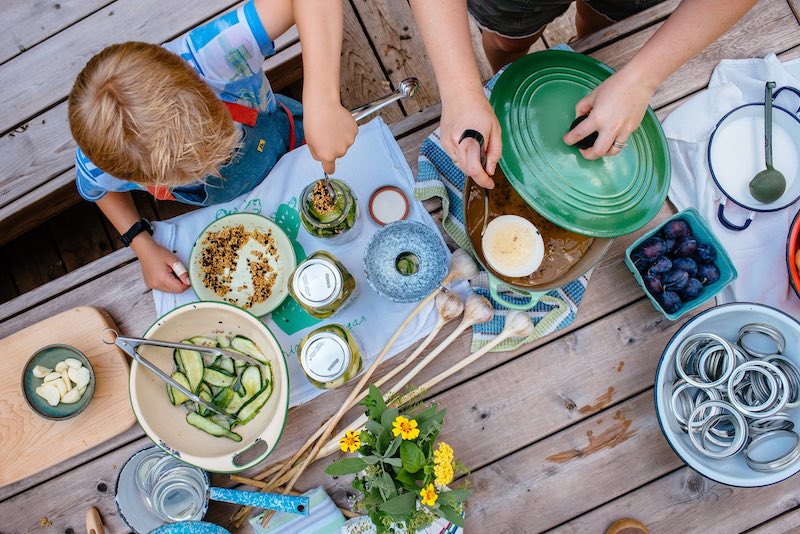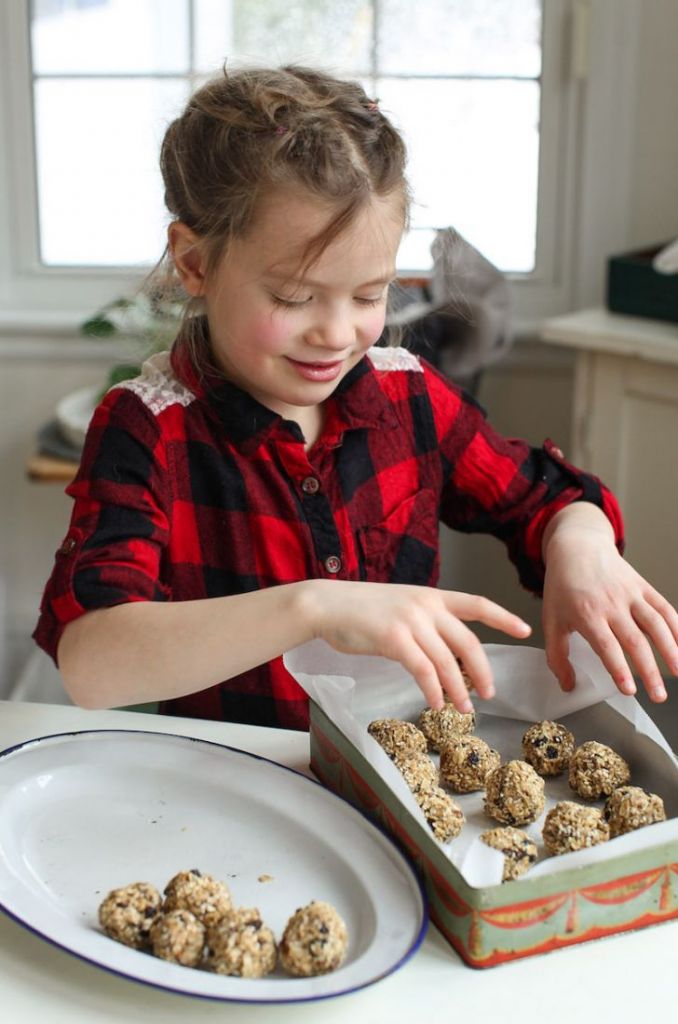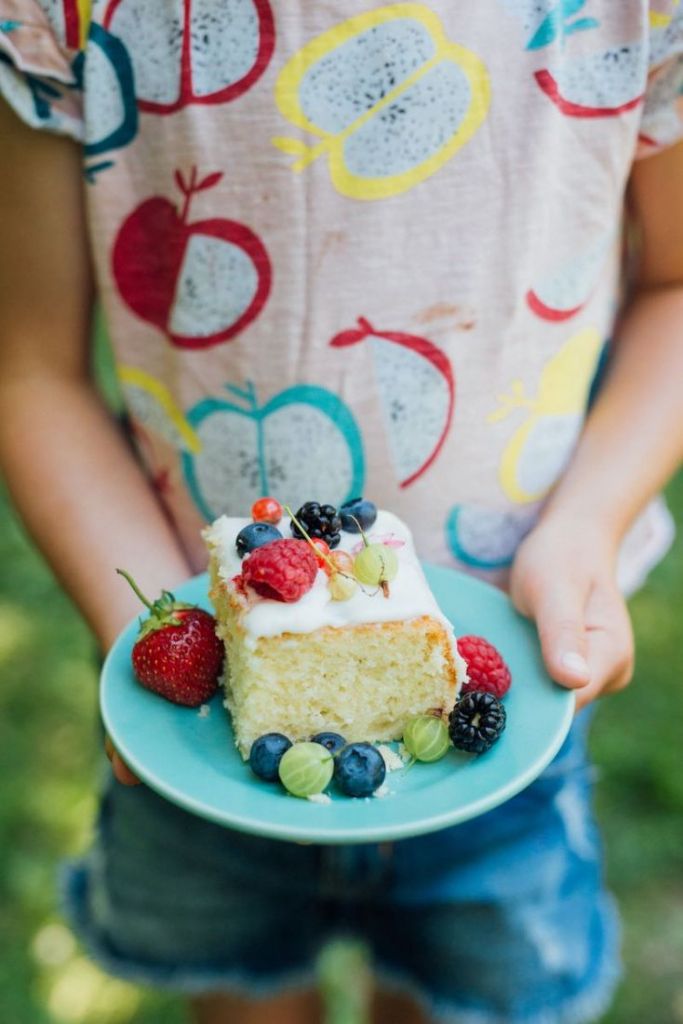Years ago, when my three children were very young, I remember flipping through a cutesy kid’s cookbook that began with a “recipe” for cooking with toddlers.
“1 Gallon of Patience. 1 Pinch of Expectations…”
I don’t remember the rest of the recipe, but the author was accurately describing the requirements for welcoming little ones into the kitchen.
Lately my children, ages 14, 12 and 8, have been drifting into the kitchen a lot more than usual. It’s been lovely to have more time to cook and bake with them, rather than rush to get out supper every day. Together we measure and stir, roll and bake, all the while learning, laughing and bonding.
Since so many of us are safe at home during this uncertain time, I wanted to take this opportunity to encourage you to round out the corners of your children’s food education.
As a cookbook author and food creative at Simple Bites, I’m essentially always in the kitchen. In many ways, my children have grown up at the counter alongside me.
Today I’m sharing what I’ve learned over the past decade about kids in the kitchen. We sure have had some adventures!
Kids Need to Feel They Belong
Absolutely everything else from A-Z can be taught, but the feeling of belonging in the heart of the home must be impressed upon children from the beginning.
My children are by no means master chefs but they do find comfort and joy in the kitchen and that is what’s important to me. I’d hate if they were highly skilled, but found cooking dinner to be a chore.
Starting from toddlerhood, I’ve taken every care to make them feel welcome alongside me as I chop and stir. Yes, there have been days when I have to fake it…but only at the beginning. I’ve never regretted a baking session. Ever.
Our kids need to feel like the kitchen is a safe space to make mistakes. When they are comfortable doing so, they will learn. And as they learn and develop skills, their confidence will emerge.
Not All Kitchen Helpers Are Created Equal
In my experience, each child approached cooking and baking from different angles. In my house, I have a cookbook-reading baker, a thoughtful yet cautious cook and an enthusiastic little chemist who turns everything upside down.
You’ll need to observe and figure out what works well for your child. One you assess their skill level (and attention span!) you can assign tasks suited to their ability level.

Kids Don’t Want to Be Rushed
Take your time. Don’t hurry anyone through a job. These days we have ample time to cook—and teach—it’s nice not to have the usual rush of our daily lives that comes from having three kids in school and two working parents.
Kids Can Learn Essential Organizational Skills in the Kitchen
Read through the recipe before getting started. Discuss the importance of set-up and getting organized. Assemble the ingredients and tools. Having everything within reach before they begin will help your little chefs to cook and bake safely and efficiently.
They’re Kids, Not Adults
Try to relax and let the small stuff slide when your teens and tweens are trashing the kitchen. (It happens!) It’s just food; so what if it’s uneven, wobbly, or a bit burned? Accept that learning involves making mistakes. Don’t expect perfection from these little bakers.
Kids Love to Get Rolling
Playing with dough of any kind has always held my children’s attention. If they can eat the end result, then it’s a sure thing they will want to stick around to help.
From as early as age 3 or 4, I taught them to roll out dough and cut it into various shapes. We can’t always be making cookies, so a rolled cracker has become our alternative to baking sweets.

Kids Just Want to Have Fun!
Let them taste, snack and nibble along the way. Look the other way when they lick the bowl, steal handfuls of chocolate chips and eat half the add-ins from those Chocolate Pretzel Monster Cookies.
Kids Can Clean
Do your kids a huge favor and don’t let them skip the dishes. Practice kitchen clean-up together once those Oatmeal Spice Muffins are in the oven. It’s vital that they learn the importance of cleaning up after themselves at an early age.
Kids Care About the Earth
There are a thousand little ways we can make environmentally friendly choices in the kitchen. Regrowing vegetable scraps is one of our favorites.
This simple kitchen project started as a way to demonstrate to my daughter Clara how not all vegetable scraps need to end up the compost bin—many can sprout again if given the chance. Oh how I love a good lesson from the kitchen, especially if it promotes food sustainability!

To end, I encourage you to keep up the kitchen time with the kids. By touching the food, talking about it, and watching it come alive under their hands, our children are learning to appreciate whole foods and the satisfaction that comes with scratch cooking and baking. You see, my friends, the effects of this nurturing, one-on-one time in the kitchen will last a lifetime.
Aimée Wimbush-Bourque is an award-winning food writer and bestselling author living with her husband and three children in Halifax, Nova Scotia. She is the author of Brown Eggs and Jam Jars (PRH, 2015) and The Simple Bites Kitchen (PRH, 2017). Her blog, Simple Bites, is an online community that fosters the importance of bringing the whole family together around the table. Aimée is passionate about forging a healthy family food culture through home cooking, outdoor adventure and modern-day homesteading. She’s an advocate for seasonal eating, #Zerowaste cooking and the #zerohunger Global Goals.
Top photo: Tim Chin



